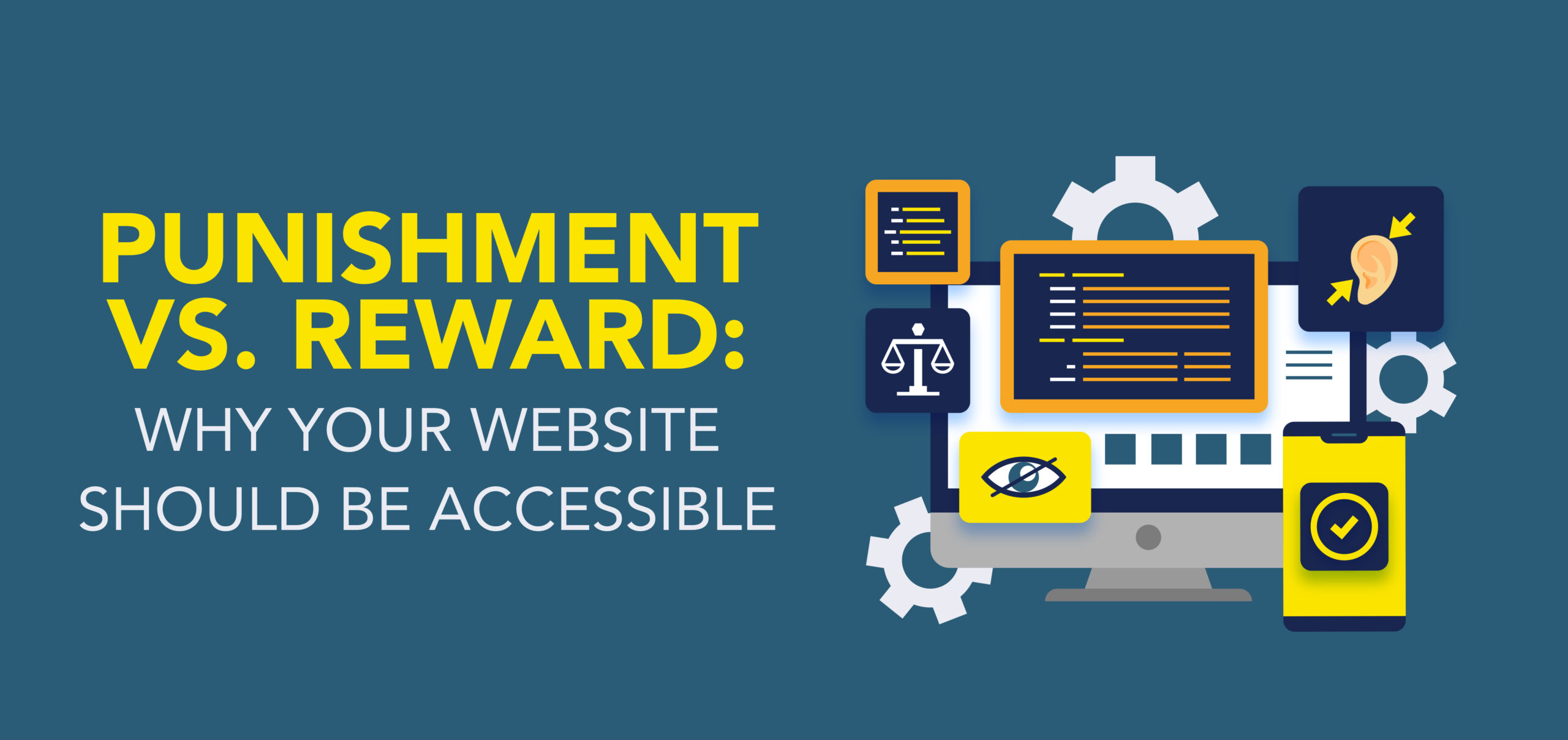
Punishment vs. reward: Why your website should be accessible
Posted on August 10, 2022
-
Category:
- Atlanta Web Design
Do your customers complain that your website makes their eyes hurt? Do they have vision or hearing loss and find themselves unable to take advantage of every resource your website offers? If you’re receiving these complaints, you’re not alone; your website joins the 97.4 percent of top websites that have failed to meet at least some web accessibility guidelines. And that particular failing grade puts you at risk of being sued.
That risk is only growing larger. According to UsableNet, nearly 100 ADA-related lawsuits are filed every week, while CIO.com reports that U.S. courts see 11 web accessibility lawsuits filed every day. And over the past four years, 412 of the top 500 internet retailers have been involved in at least one such lawsuit. These statistics are fueled in part by the trend of individual citizens filing multiple lawsuits; one plaintiff in California has sued dozens of wineries in Northern California and the Central Coast, alleging accessibility violations.
Health care organizations with inaccessible websites may incur even more pressing legal issues if patients are denied urgent medical attention because of the unavailability of time-sensitive information across all devices. For website visitors who live with disabilities and face barriers to care at the best of times, gaining prompt digital access to information about COVID vaccination schedules and treatment options can improve health outcomes—up to and including the saving of lives.
Current guidance from the Department of Justice suggests that all public-facing websites—including those of businesses operating solely online—must be accessible to persons with disabilities. For a quick overview of relevant web accessibility standards, see our “Website Accessibility: Helping an Underserved Population.”
If lawsuits are the punishment when it comes to maintaining digital accessibility, the purchasing power of Americans living with disabilities offers a considerable reward. CIO.com reports that disabled American consumers spend almost $500 billion each year—a figure that business owners cannot afford to ignore.
Attracting online visitors with disabilities by creating accessible websites makes good business sense; although designing or redesigning an accessibility-first website may involve significant upfront fees, traffic from repeat customers will help you pay for website maintenance over time.
The designers and developers at Atlanta-based graphic design agency Badie Designs LLC have years of collective experience designing responsive, accessibility-first websites. Contact us today for a consultation.
